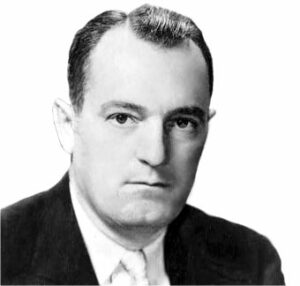
Photo credit: Public domain
by Debbie Burke
Author and professor William Kittredge once told me good writing should be like water—invisible. It should flow so smoothly that a reader becomes engaged in the story and forgets that they are reading.
Minor details can disrupt that flow. These small craft issues aren’t usually fatal, but they’re annoying to readers.
Often, the problems are unconscious habits the writer isn’t even aware of. The same habits tend to pop up all the way through a manuscript.
Fortunately, once the writer becomes aware of them, they’re easy fixes.
Today, let’s discuss three issues I run across frequently as a freelance editor.
- Attributions – Starting a scene or chapter with dialogue can work well to pull the reader into the story quickly. But often writers neglect to indicate who’s speaking until several lines (or longer) into the paragraph.
“The heist is in three weeks. We need to hack into their computer for the guard schedule, confirm the inventory, and decide which crates to take. The truck has to be rented using a fake ID. But that requires a commercial driver’s license. We also need someone who can operate a forklift,” John said to his teammates, Paul, George, and Ringo, who were gathered around the table.
If you begin with dialogue, place the attribution at or near the beginning of the passage. The reader shouldn’t have to wait a half page to find out who’s talking.
Attributions are especially important in scenes with multiple characters. Don’t make the reader guess which character is talking.
Said or asked are quick efficient tags that don’t draw attention to themselves. An action tag also works well to identify the speaker.
But don’t overdo it—use either a dialogue tag or an action tag, but not both.
“I don’t like this one bit,” George said and shifted in his chair. “A commercial license is harder to fake.”
John stretched his arms over his head and said. “Well, figure it out because that’s how it’s going to be.”
“I can drive a forklift,” Ringo said.
Paul snorted. “You ran it into a wall last time.”
- Sentence chronology – By chronology, I’m referring to actions that don’t flow in a natural order.
The following example is understandable but far from clear. It requires the reader to jump back and forth in time to follow what’s happening.
Breathless and worried that something weird was going on, Joan flopped in a chair, weary from having climbed three flights of stairs after showing her ID to the security guard when she entered the office building. He had stared at her strangely.
She had asked, “Don’t you recognize my face by now? I’m here every day.”
Because the actions are out of chronological order, the reader must pause to mentally rearrange what happened and when it happened. For a second or two, the reader is distracted and pulled out of the story.
Revision with actions in order:
Joan entered the office building and started to pass the security desk.
“Wait.” The guard rose and blocked her way. “I need to see your ID, please.”
“Don’t you know me by now? I’m here every day.”
He stared at her, one eye squinted, hand extended.
She gave him her badge, but he barely glanced at it before giving it back.
Unsettled, Joan climbed three flights of stairs, growing more breathless with each step. In her cubicle, she flopped into a chair and gasped for air. Did the guard really not recognize her or was something weird going on?
- Summarize or dramatize.
Years ago in my critique group, a friend was writing her family’s history. She did extensive genealogical research that was interesting but not compelling.
One day, she read an excerpt to us:
My father was buried near the airport where he had crashed the plane.
That was it. No details.
We stared at her open-mouthed. “What crash? When? How?”
“Oh, he didn’t die then. He was on a test flight after an overhaul and a cable pulled loose. The plane went down but he walked away. He died years later from cancer. The cemetery just happened to be near the airport.”
She’d left out the meat of the story by summarizing two major life events into a single sentence.
We all laughed about that bare-bones summation. When she returned with a revision a few weeks later, she had dramatized those incidents into full-fledged scenes.
Recently I read a manuscript about a couple whose 15-year-old daughter has disappeared. The passage is about 20 pages long and I’ve summarized it here:
For years, Marsha and Phil have clashed about how to handle their daughter, who displays peculiar behavior. The girl has run away in the past. But this time, she’s been gone for weeks. They put up posters, contact police, register her with Missing and Exploited Children, etc. Months pass with each parent blaming the other for the daughter’s disappearance. The strain on their marriage becomes unbearable. Then…
When Phil told Marsha that he was moving out, she was relieved.
That’s all the author wrote. She summed up a huge turning point in one declarative sentence.
She had included more details about photocopying posters and the places where they nailed them up than about this sea change in their relationship.

Photo credit: public domain
Writers frequently describe day-to-day minutiae because they believe activities like tooth brushing and making toast bring the character to life. But too many insignificant details are boring. Elmore Leonard’s wise advice is to leave out the parts readers skip over.
The opposite problem is too little detail, like the plane crash example above.
Writers often rush through critical events that radically change the story’s direction.
As we review our stories, we need to identify important events or revelations.
Dramatize those in scenes.
We also need to identify unimportant events that fill pages but are only incidental to the story.
Summarize those.
Summaries work well as transitions to move the story forward to the next turning point. Instead of a blow-by-blow explanation of what happens in the meantime, try summarizing it.
Marsha and Phil spent the next three months searching fruitlessly, making follow-up calls to numerous authorities, and nailing up hundreds of posters around town. They alternated between noisy arguments and silent recriminations. At night, Marsha paced the bedroom while Phil paced downstairs.
One April morning, Phil appeared in the bathroom doorway as Marsha was brushing her teeth.
“I’m moving out,” he said then walked back to the bedroom.
Toothpaste drooled from Marsha’s mouth as she stood frozen and numb, staring at the water-spotted mirror.
A few moments later, Phil reappeared in the reflection, suitcase in hand. “On my way out, I’ll put bread in the toaster for your breakfast.”
Footsteps thudded down the stairs, followed by a brief clattering of dishes. The kitchen door opened then closed.
Marsha was startled to realize her first conscious thought was, Thank God!
As you rewrite, keep an eye out for misplaced attributions; sentences that are not in chronological order; scenes that are summarized but should be dramatized, and overwritten scenes that can be reduced to summaries.
These small but significant differences make your writing flow like clear water.
~~~
TKZers: What small, annoying details irritate you when you read? What bothersome, unconscious habits pop up in your own writing?
~~~
Clear waters turn murky when a greedy billionaire covets a cherry orchard on pristine Flathead Lake. Can investigator Tawny Lindholm and attorney Tillman Rosenbaum save the orchard owner after he’s accused of arson and murder?
Debbie Burke’s latest thriller Fruit of the Poisonous Tree is FREE on Kindle Unlimited.



